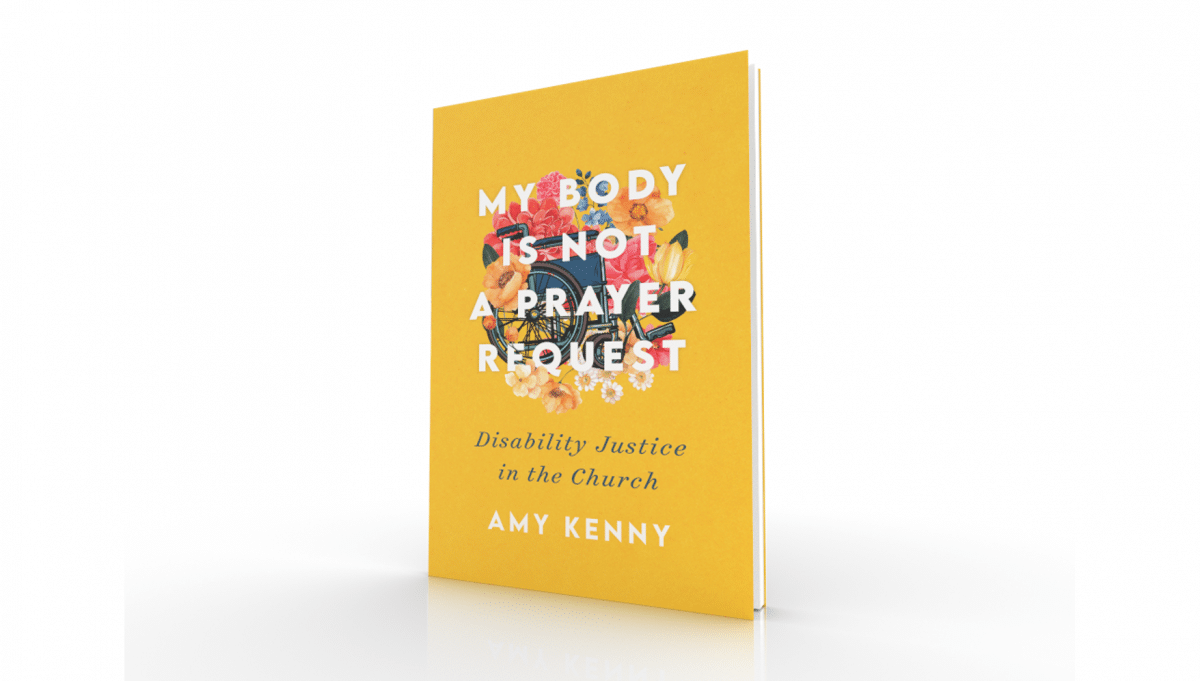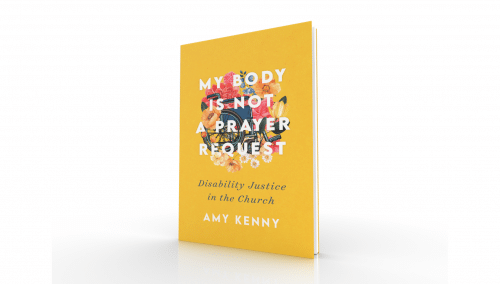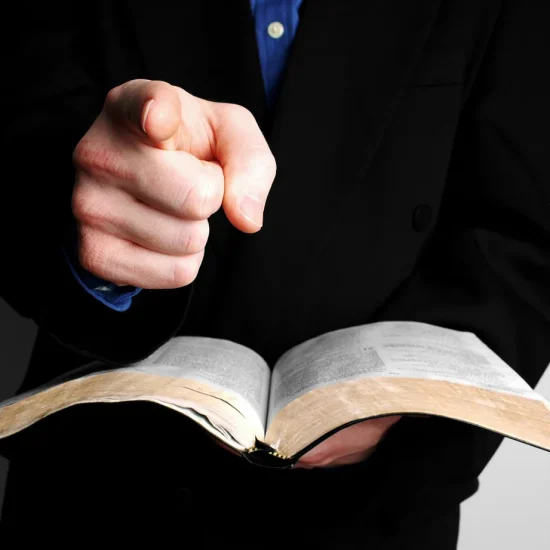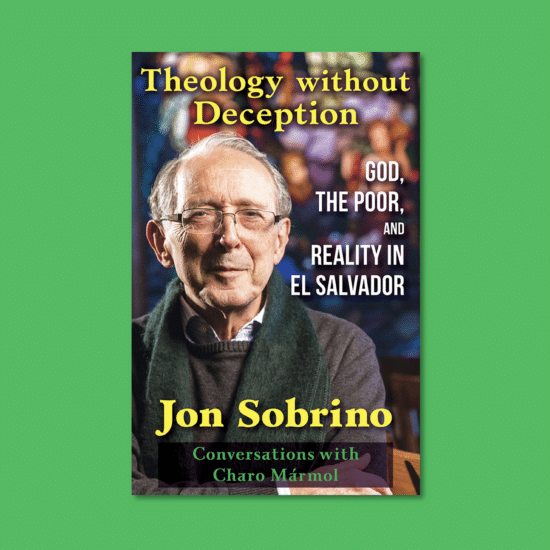

MY BODY IS NOT A PRAYER REQUEST: Disability Justice in the Church. By Amy Kenny. Grand Rapids, MI: Brazos Press, 2022. Xii + 194 pages.
In recent years I’ve become more aware of the realities faced by those whose life experiences are different from mine. These differences may involve race and ethnicity, gender, sexual orientation, and ability/disability. When your life experience is different from others, it’s easy to think that your experience is normal and even normative. Therefore, you judge everyone else on that basis. I’ve learned to listen to and acknowledge the voices of others who have experienced marginalization and oppression. I’ve tried to empathize and sympathize as best I can. But of course, feelings aren’t enough.

Robert D. Cornwall
In My Body Is Not a Prayer Request we’re confronted with the reality experienced by one who is disabled. As the subtitle of Amy Kenny’s book reveals, it is a call for Disability Justice in the Church. The author of this book, Amy Kenny, holds a Ph.D. in literature from the University of Sussex and is a Shakespeare lecturer at the University of California, Riverside. She is, by self-identification, a disabled person. She acknowledges that there is a difference of opinion within the disability community as to how to self-identify. Some want to be known as a person with a disability, while others, like Kenny, speak of themselves as being a disabled person. Thus, in this review, I will follow her lead.
Kenny uses her own story to call on the church to rethink how it understands and relates to disabled people. The title of the book makes it clear that to be disabled does not mean being without abilities. She’s also not asking for prayers. She has accepted her reality, with its challenges, as being her normal. She would like those whose reality is different from hers to accept her normality, but in doing so she asks for her normal to be recognized and honored by accommodating her reality.
As we read her story, we encounter at points her frustration with doctors who probe and push and provide little help. She gets frustrated with well-meaning strangers who offer her advice and pathways to a cure. Then there is the church that treats her and other disabled people as if they need a cure. She also expresses her frustration with the church’s unwillingness to provide proper access to disabled people like her.
Her story reminds us that all disabilities are not the same. She was diagnosed as an eleven-year-old with “general dysfunction.” In other words, the doctors don’t know why her leg doesn’t have circulation. Through the years she’s gone through myriads of tests and treatments, but in the end, she remains disabled. She can walk short distances with a cane, but to truly get around she leans on her wheelchair.
This is not a feel-good book. She pushes the reader’s buttons. The book is filled with complaints about doctors, strangers, churches, and more. I wanted to say at points that the churches I’ve served have tried to make a place for the disabled. But truth be told, even the best-equipped churches could do more. Then there’s language usage. As a preacher, I’ve used words like blind and lame to describe spiritual positions. She calls us out on our misappropriation of language that demeans disabled people. We may find it difficult to find alternatives, but she pushes us to do the work.
If we’re willing to go along with her on this journey that begins with her addressing what she calls “Disability Curatives” —the medical side of things, including suggested remedies by strangers— then we can move to the questions that churches need to face, starting with “Disability Discrimination.” From there we move to “Disability Doubters” (are you really disabled?), “Disability Justice,” and “Disability Blessings.” There is a chapter on “Disability Mosquitos.” This is a chapter on microaggressions and accusations that she is overly sensitive about language and attempts to accommodate her needs. She suggests that this is an expression of resistance to change. From there we move to disability lessons (chapter 7). Here she addresses the path to embracing one’s disabled body as “inherently worthy as image-bearers.” She writes that the “world and the church teach us that we are not enough, that we need to be ‘fixed’ (read: cured) to be whole, that we have all the makings of a ‘before’ picture of a prayer makeover” (p. 111). It took time for her to learn she was worthwhile as a person just as she was. That came without a lot of help from the church.
As we move toward the conclusion of the book, she takes up the foundations for a new reality when it comes to inclusion. Part of that has to do with changing our way of looking at disabled people. They are not “less than” others. Thus, when God sees them, God sees them with their disability (she is often told that God doesn’t see her disability as a word of encouragement), for it is part of who they are. So should we. This leads us to the final two chapters: “Disabled God” and “Disabled Church.” In the first of these two chapters, she addresses the question of whether one’s disabilities are carried into the next life. She points to Jesus as representing the “disabled God.” His cross put him in a position of being disabled, and he carries those scars into the next reality. The question isn’t whether we experience disability or not in heaven, but assuming that we carry these disabilities into that reality, then would God make accommodations? Thus, she invites us to “imagine the possibilities if we experienced bodily difference not as a defect or loss but as a unique opportunity to experience the diversity of a vast creator God. It just might make the body of Christ healed and whole” (pp. 158-159). In the final chapter of the book, the one titled “Disabled Church” she draws on biblical images of the church where the disabled are included, including Jesus’ parable of the banquet in which the servants are sent out to bring into the banquet the poor and the disabled. She also points us to the story of Mephibosheth, the disabled son of Jonathan, whom David included at his table as one of his sons. If this is true of Jesus and David, then why not the church? Why can’t the church make every effort to include the disabled, for to be disabled is not to be less than others? Kenny wants us to know that she accepts herself as being whole and healed even if not cured.
Though one will feel challenged throughout, the nondisabled reader (me) will learn new lessons and hopefully adapt in such a way as to welcome and include the disabled person as well as affirming their full humanity. For those who experience disability, I expect that they will identify with much of what is shared here and would want us to know that. As I read, I thought about how we may all at some point experience a form of disability. I have worn glasses for nearsightedness since the 4th grade. I know it’s not the same but as Kenny shared about the value and importance of devices, like wheelchairs, that assist people with disabilities, I thought of my glasses. I wear my glasses pretty much all day, except when sleeping and taking a shower. In many ways, I’m blind without my glasses. I can see partially, but not fully. I’ve made my peace with that reality. Granted it’s not the same, but I tried to use my reality as a lens through which to understand her reality. I’m grateful to have taken the journey of understanding. I encourage others to do the same.
Since I read this book based on an advanced reader’s copy, the page numbers might not be the same as in the final edition. That edition is due to be published in mid-May. You may, therefore, preorder Amy Kenny’s My Body Is Not a Prayer Request, and when it arrives be ready to be challenged.
This review originally appeared on BobCornwall.com.
Robert D. Cornwall is an ordained minister in the Christian Church (Disciples of Christ). Now retired from his ministry at Central Woodward Christian Church (Disciples of Christ) of Troy, Michigan, he serves as Minister-at-Large in Troy. He holds a Ph.D. in Historical Theology from Fuller Theological Seminary and is the author of numerous books including his latest books: Called to Bless: Finding Hope by Reclaiming Our Spiritual Roots (Cascade Books, 2021) and Unfettered Spirit: Spiritual Gifts for the New Great Awakening, 2nd Edition, (Energion Publications, 2021). His blog Ponderings on a Faith Journey can be found at www.bobcornwall.com.






